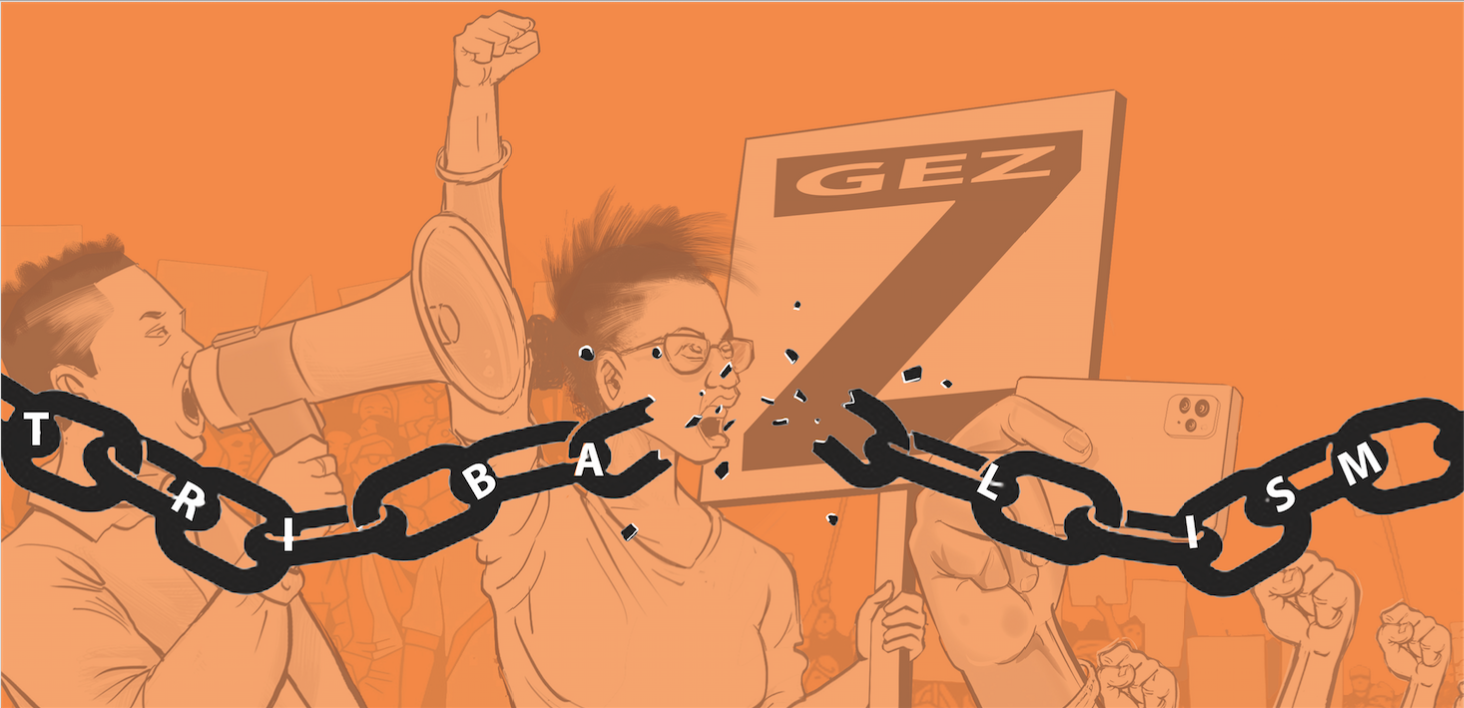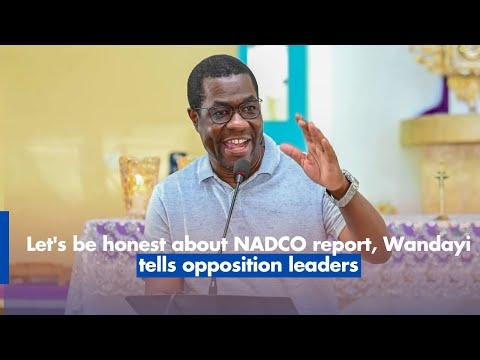

In his Monday, July 21, column 'Weak link in Gen Z united front: No Clear Demand,' veteran columnist Wycliffe Muga attempts to dissect Kenya’s Gen Z protest movement. Drawing parallels with historical political alliances and past opposition struggles, he argues that today’s youth-led uprising lacks clarity, structure, and actionable demands. But in doing so, Muga misses the forest for the trees.
His question, “What is the weakest link in this supposedly invincible group?”, might be
provocative, but it’s incomplete. The more powerful and relevant question is: What is the strongest trait of this emerging
civic force?
The strength in being leaderless
Kenya’s Gen Z movement has stunned many with its coordination, digital savviness and resilience. Their strength lies not in hierarchy or tribal alliances, but in a decentralised, tech-driven solidarity. This is a generation that has redefined protest—mobilising across ethnic, regional and class lines to challenge state excesses, demand accountability and affirm their constitutional rights.
Muga acknowledges their effectiveness but quickly discredits them for lacking “a clear and time-specific plan of action”. That’s a misleading charge. These protests had—and still have—clearly stated demands: rejecting the Finance Bill, 2024, calling for lifestyle audits, an end to state wastage and respect for constitutionalism. These were not vague murmurs; they were amplified online, debated in Parliament and echoed on the streets by thousands.
To accuse Gen Z of ambiguity is to ignore the clarity of their message and the legitimacy of their concerns.
Not the 1990s, and that's the point
Muga compares the current uprising with the 1990s push for multiparty democracy, where activists sought to repeal Section 2A of the constitution. That was a single-issue battle in an autocratic environment. Today’s movement is different. As I aptly put it, “This is not your 1990s fight for democracy through multipartyism.”
This time, the fight is multidimensional—against corruption, state brutality, excessive taxation, exclusion, poverty and constitutional betrayal, amongst many other issues. The constitution already exists. What Gen Z are asking for is simple: implement it. Uphold it. Live by it.
This isn’t about writing
new documents; it’s about restoring
the social contract
between the state and the citizen.
The facelessness is the feature, not a flaw
Muga,
and many others in government and elsewhere, lament
that the movement is “faceless.”
But this is precisely the beauty of it. Gen Z has rejected the all-too-familiar tradition of charismatic “leaders” who later strike deals and abandon the cause. In being leaderless, the movement has become incorruptible—it speaks not through individuals, but through collective will.
The youth have watched for years as self-appointed spokespeople cut deals behind closed doors, leaving the very citizens they claimed to represent behind. This time, they are determined to speak for themselves. And they’re doing it with clarity, courage and conviction.
Beyond tribes, beyond tokenism
Muga also brings up the old narrative of economic tribalism—how rural livelihoods shape voting patterns. That may still hold in pockets of society, but Gen Z is a post-tribal generation. They are urbanised, digitally networked and emotionally detached from the ethnic calculations of the past.
What they are demanding is simple: A government that works for all, not just for regions with political capital. They seek equity, not favouritism; unity, not tokenism. As I can confidently put it, “It’s not wrong to identify with your community—but it’s even more urgent to realise your responsibility as a Kenyan.”
This movement is attempting to do what successive regimes have failed at: nation-building through shared struggle.
The real problem isn’t Gen Z — it’s the system
Let’s be clear: what Muga misreads as weakness is actually a reflection of a deeply broken system. Gen Z are not the problem—they are a response to the problem. The corruption, the lack of dignity in governance, the impunity and the violent suppression of dissent have created a civic explosion that was inevitable.
Their demand is not for a new document, or for new leaders to rise. Their demand is for those in power to respect the very laws they swore to uphold.
Listen before you lecture
Muga’s experience in analysing Kenyan politics is undisputed. But in this piece, he attempts to evaluate a new movement using old tools. What we are witnessing is not just another protest—it’s a civic reset, a new blueprint for participatory democracy.
Rather than question their clarity or leadership, it would be wiser for political commentators and power holders to ask: Why are so many Kenyans choosing the street over the ballot box? Why do they feel unrepresented, unheard and unprotected?
Until those questions are answered honestly, this movement will continue to grow. And it will not need permission, parties or personalities to do so.
Aspiring civic educator, policy analyst and social commentator passionate about youth empowerment and good governance


















